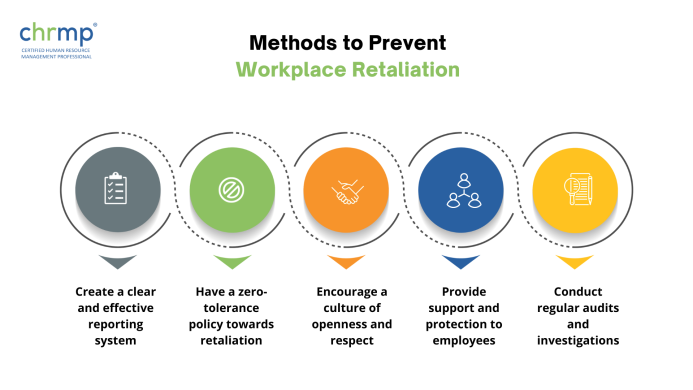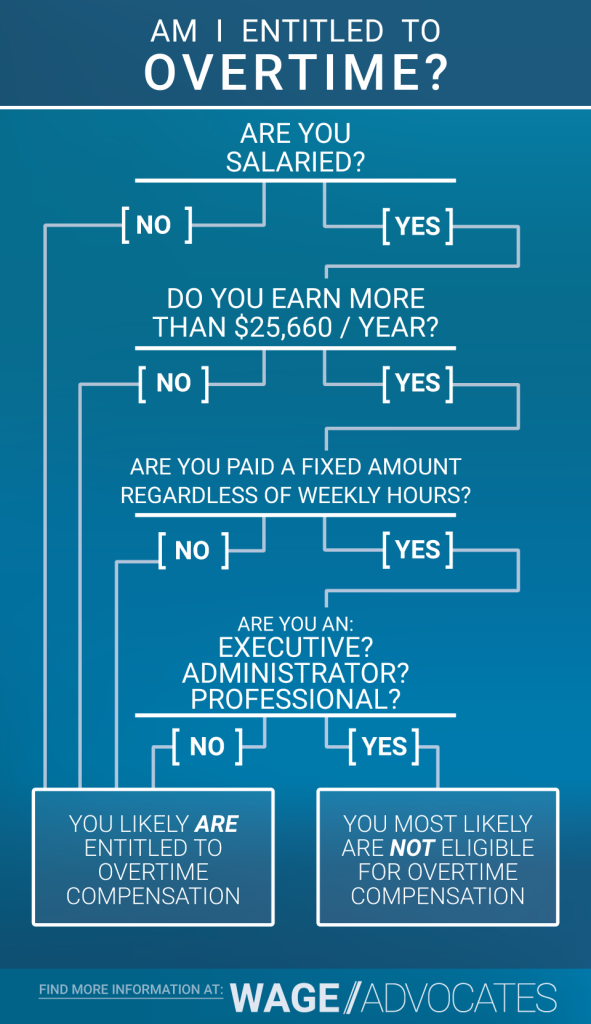
Mastering Reference Checking: Your Guide to Best Practices for Smarter Hiring
Hiring the right person is one of the most critical decisions any business can make. A great hire can elevate your team, boost productivity, and foster a positive work environment. A bad hire, however, can lead to wasted resources, decreased morale, and even legal headaches. While interviews and resumes give you a snapshot, reference checking provides a crucial third dimension – a real-world perspective from people who have worked with your candidate.
Think of reference checking not as a formality, but as a strategic tool. It’s your chance to verify claims, uncover potential red flags, and gain insights into a candidate’s work ethic, skills, and how they interact with others. This comprehensive guide will walk you through the best practices for effective reference checking, helping you make more informed and confident hiring decisions.
Why Reference Checking Isn’t Just a "Nice-to-Have" – It’s Essential!
Many hiring managers skip reference checks, seeing them as time-consuming or ineffective. This is a missed opportunity! Here’s why they are vital:
- Verifies Information: Resumes can be embellished, and interviews can be performances. References help confirm job titles, dates of employment, responsibilities, and achievements.
- Uncovers Hidden Strengths: A reference might highlight a candidate’s incredible problem-solving skills or their natural leadership abilities – qualities that didn’t fully shine in an interview.
- Identifies Potential Red Flags: While most references are positive, a hesitant tone, vague answers, or consistent themes of concern can signal issues that need further exploration.
- Assesses Cultural Fit: A reference can tell you how a candidate interacts with colleagues, handles conflict, and contributes to team dynamics, giving you clues about how they’d fit into your company culture.
- Predicts Future Performance: Past behavior is often the best predictor of future behavior. Learning how a candidate performed in a similar role can help you anticipate their success in yours.
- Reduces Hiring Risk: By gathering more data, you significantly decrease the chances of making a costly bad hire.
When to Check References: Timing is Everything
The timing of your reference checks is crucial. You don’t want to do them too early, wasting time on candidates who aren’t a good fit, nor do you want to do them so late that you’re rushed.
Best Practice: Conduct reference checks for your top 1-3 candidates after the final interview stage, but before extending a formal offer.
- Why not earlier? It’s a time investment. Only spend this time on candidates you are seriously considering.
- Why not later (after the offer)? While some companies make the offer conditional on successful reference checks, it’s often better to do them beforehand. This allows you to address any concerns before extending an offer, which can be awkward to retract. If an offer is conditional, be prepared for the candidate to be less inclined to provide references if they already have an offer in hand.
Before You Pick Up the Phone: Essential Preparation
Effective reference checking starts long before you dial. Preparation ensures you get the most valuable information.
1. Obtain Candidate Consent (and Provide Instructions)
- Always ask for permission! It’s professional courtesy and, in many regions, a legal requirement.
- Explain the process: Let the candidate know you’ll be contacting their references and roughly when.
- Provide clear instructions: Ask for a minimum of 3 professional references, including at least one direct supervisor. Advise them to notify their references that you’ll be calling. This simple step significantly increases the likelihood of references picking up and being prepared to speak about the candidate.
- Get contact information: Full name, title, company, phone number, and email address for each reference.
2. Decide Who to Call
- Prioritize direct supervisors: These individuals have the best insight into a candidate’s day-to-day performance, work ethic, and ability to meet expectations.
- Consider peers or direct reports: If appropriate for the role, hearing from colleagues or subordinates can offer valuable insights into teamwork, leadership, and interpersonal skills.
- Be wary of "friends" or family: These references will almost always be overwhelmingly positive and provide little objective insight.
3. Craft Your Questions: Focus on Behavior, Not Just Praise
The quality of your reference check directly depends on the quality of your questions. Avoid "yes/no" questions or those that invite generic praise. Instead, use open-ended, behavioral questions that encourage the reference to provide specific examples.
Key Question Categories:
- Role & Responsibilities:
- "Could you please confirm [Candidate’s Name]’s job title and dates of employment at [Company Name]?"
- "What was your working relationship with [Candidate’s Name]?"
- "What were their primary responsibilities?"
- "What was their biggest achievement during their time there?"
- Performance & Skills:
- "Can you describe a specific project or task where [Candidate’s Name] really excelled?"
- "How did they handle tight deadlines or stressful situations?"
- "What were their biggest strengths in the workplace?"
- "What areas, if any, do you think they could improve upon?" (This is crucial for identifying areas for growth, not just weaknesses).
- "How would you describe their problem-solving skills?"
- "How did they respond to feedback or constructive criticism?"
- Teamwork & Interpersonal Skills:
- "How well did they collaborate with colleagues and other departments?"
- "Can you provide an example of how they handled a conflict or disagreement with a team member?"
- "How would you describe their communication style?"
- Reliability & Work Ethic:
- "How reliable and dependable was [Candidate’s Name]?"
- "Did they consistently meet deadlines and expectations?"
- "What was their attendance like?"
- Overall Fit & Rehire Potential:
- "What kind of work environment do you think [Candidate’s Name] thrives in?"
- "Given the opportunity, would you rehire [Candidate’s Name] for a similar role?" (This is a powerful closing question. A hesitant or "no" answer warrants deeper exploration).
- "Is there anything else you think I should know about [Candidate’s Name]’s professional capabilities or work style?"
Important Note: Tailor your questions to the specific job requirements. If the role demands strong leadership, ask specific questions about their leadership style and experiences. If it’s a detail-oriented role, ask about their precision and organization.
Conducting the Reference Check Call: Professionalism and Insight
Now it’s time to make the calls. Approach each call professionally, aiming to build rapport and gather honest, detailed information.
1. Introduce Yourself & Your Purpose
- Clearly state your name, company, and the purpose of your call (e.g., "I’m calling in regard to [Candidate’s Name], who has applied for a [Job Title] position at our company.")
- Confirm their relationship to the candidate (e.g., "Could you confirm your working relationship with [Candidate’s Name] at [Previous Company]?")
- Respect their time: "Do you have about 10-15 minutes to chat now, or would another time be better?"
2. Set the Stage for Honest Feedback
- Reassure them of confidentiality (if applicable and appropriate).
- Emphasize that you’re looking for an honest, balanced perspective to ensure a good fit for both the candidate and your company.
3. Ask Your Prepared Questions (and Listen Actively!)
- Stick to your script: This ensures consistency across candidates and prevents you from forgetting important questions.
- Listen more than you talk: Don’t interrupt. Let the reference elaborate.
- Probe for details: If a reference gives a vague answer, follow up with "Can you give me a specific example of that?" or "Could you elaborate on what you mean by that?"
- Pay attention to what’s NOT said: Hesitations, long pauses, or overly brief answers can be as telling as direct statements.
- Don’t lead the witness: Avoid questions like, "So, [Candidate’s Name] was a great team player, right?" Instead, ask, "How would you describe [Candidate’s Name]’s teamwork skills?"
4. What NOT to Ask (Legal & Ethical Considerations)
To avoid potential legal issues and maintain ethical standards, never ask about:
- Age, race, gender, religion, national origin, disability, sexual orientation, marital status, or family plans.
- Health conditions or medical history.
- Financial status (unless directly relevant to a financial role and with explicit consent).
- Criminal record (unless part of a separate, legally compliant background check process).
- Any questions that could be considered discriminatory or lead to a discriminatory hiring decision.
Focus solely on job-related performance, skills, and work behavior.
5. Take Detailed Notes
- Jot down key phrases, specific examples, and any concerns or praises.
- Note the reference’s name, title, company, and the date of the call.
- These notes will be invaluable when you’re comparing candidates and making your final decision.
After the Call: Evaluation and Decision-Making
Once you’ve completed your reference checks, the work isn’t over. Now you need to evaluate the feedback objectively.
1. Compare and Contrast
- Look for patterns: Do multiple references highlight similar strengths or areas for development? Consistent feedback is often the most reliable.
- Cross-reference with the interview and resume: Does the feedback align with what the candidate told you? Discrepancies warrant further investigation.
- Identify inconsistencies: If one reference provides vastly different information from the others, or from the candidate themselves, dig deeper.
- Weigh the feedback: A direct supervisor’s feedback might carry more weight than a peer’s, depending on the role.
2. Address Red Flags (Don’t Ignore Them!)
- If a reference raises a significant concern, don’t just dismiss it.
- Consider calling another reference to get a different perspective.
- If the concern is serious, you might even consider a follow-up conversation with the candidate to address it directly (without revealing the reference’s identity).
3. Make an Informed Decision
- Combine the insights from your reference checks with your interview assessments, skills tests, and resume review.
- The goal is to paint a comprehensive picture of the candidate’s potential fit and performance.
- Remember, a reference check is one piece of the puzzle, but a very important one.
Common Reference Checking Mistakes to Avoid
- Skipping it entirely: The biggest mistake of all!
- Only checking one reference: A single perspective isn’t enough.
- Asking only "softball" questions: Questions like "Was John a good employee?" will always get a "yes."
- Not preparing questions: Winging it leads to inconsistent and less valuable feedback.
- Failing to take notes: You’ll forget crucial details later.
- Ignoring red flags: Don’t let enthusiasm for a candidate blind you to legitimate concerns.
- Being inconsistent: Asking different questions or applying different standards to candidates can lead to bias.
- Only checking references from the candidate’s provided list: While not always feasible, sometimes "backdoor" references (reaching out to someone who worked with the candidate but wasn’t on their list) can provide valuable, unbiased insight. However, exercise extreme caution and ensure you are compliant with all privacy laws and ethical guidelines if considering this.
- Treating it as a formality: Approach each call with the genuine intent to learn.
Advanced Tips for Top-Tier Reference Checks
- Use a structured scoring system: For multiple candidates, create a simple rubric to score references on key attributes (e.g., communication, problem-solving, reliability).
- Consider a "blind" check: If possible, have someone else (who hasn’t interviewed the candidate) conduct the reference check. This can reduce unconscious bias.
- Look for behavioral examples: Always push for specific stories and situations rather than general statements.
- Ask for areas of development: A balanced reference will be able to identify areas where the candidate could grow. This shows honesty and provides valuable insight for onboarding and development planning.
- Listen for enthusiasm (or lack thereof): The tone of voice, level of energy, and willingness to speak highly of the candidate can be very telling.
Frequently Asked Questions (FAQs) About Reference Checking
Q1: How many references should I check?
A1: It’s best practice to check at least two to three professional references, ideally including a direct supervisor.
Q2: Can I legally ask about why a candidate left their previous job?
A2: You can ask the reference about the circumstances of the candidate’s departure, but many companies have policies that limit what they can disclose (often just confirming dates of employment and job title). You should already have asked the candidate about this during the interview.
Q3: What if a reference is difficult to reach or unresponsive?
A3: Try reaching out a few times at different times of day. If you still can’t connect, inform the candidate and ask if they can provide an alternative reference. Sometimes a candidate reminding their reference to expect a call can help.
Q4: What if a reference gives a negative review?
A4: Don’t panic immediately. First, probe for specifics and examples. Then, weigh it against other feedback and your own assessment of the candidate. Consider calling another reference or even having a follow-up conversation with the candidate to address the specific concern (without revealing who said what). Remember, sometimes a "bad fit" at one company doesn’t mean a bad fit for yours.
Q5: Can I check references without the candidate’s permission?
A5: In most cases, no. It’s generally considered unprofessional and can even be illegal in some jurisdictions due to privacy laws. Always obtain explicit consent from the candidate before contacting their references.
Q6: What if a reference only confirms dates of employment and job title?
A6: This is common, especially from large companies or HR departments who have strict policies to avoid legal liability. While frustrating, it’s not necessarily a red flag. In such cases, you’ll need to rely more heavily on other references and your own interview assessment.
Conclusion: Elevate Your Hiring with Strategic Reference Checks
Reference checking is far more than a checkbox activity; it’s a critical component of a robust hiring strategy. By adopting these best practices – from careful preparation and asking the right questions to thoughtful evaluation and legal awareness – you empower yourself to make more confident, informed hiring decisions.
Invest the time and effort into effective reference checks, and you’ll significantly increase your chances of bringing truly valuable talent into your organization, building stronger teams, and setting your company up for long-term success.




Post Comment